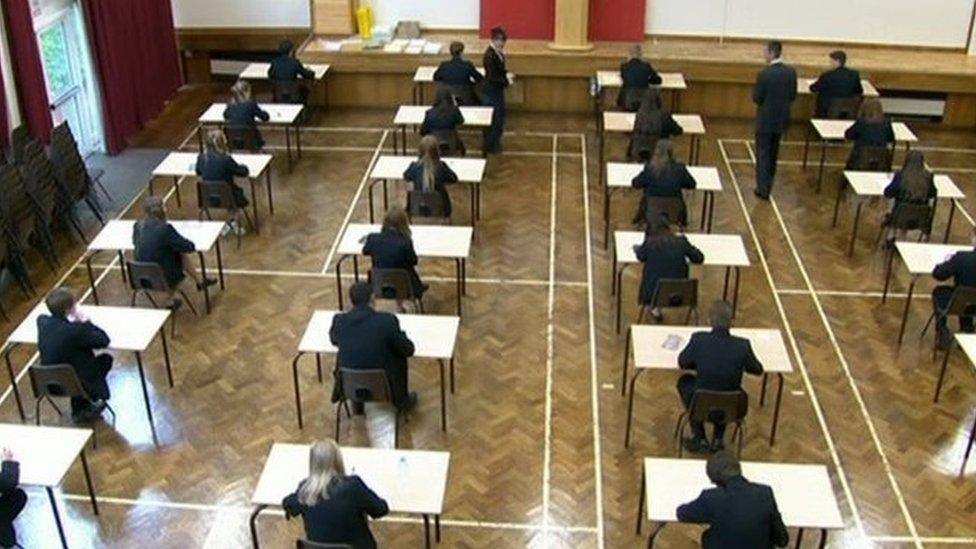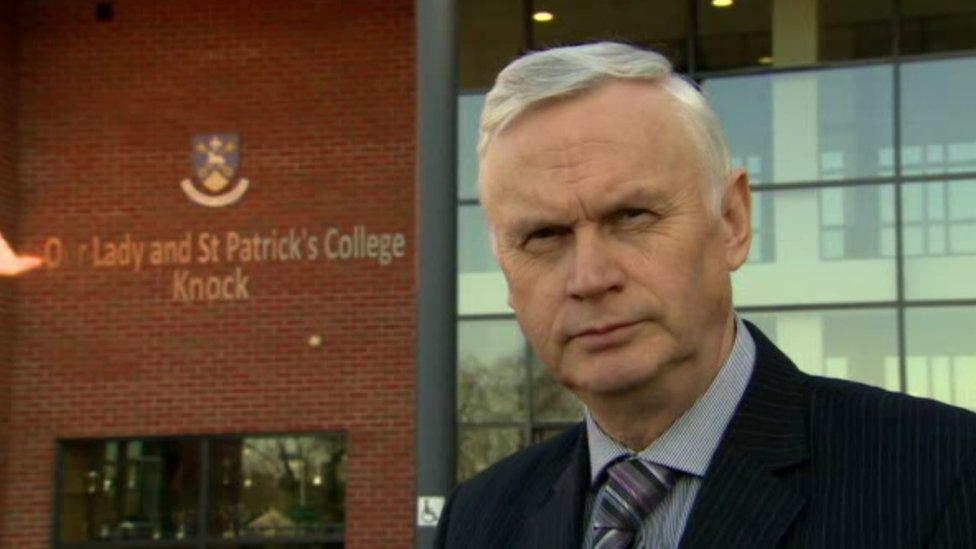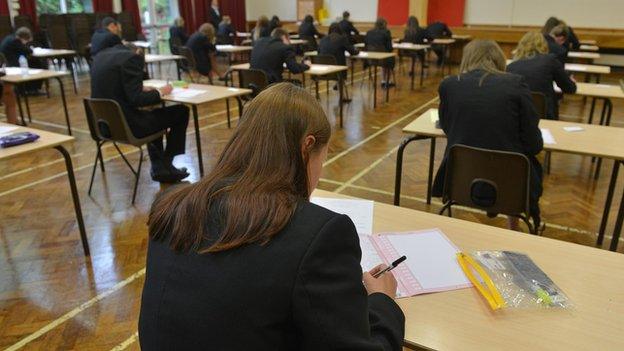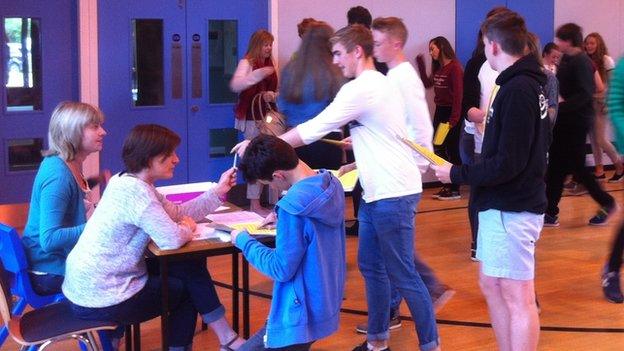Some NI GCSE pupils will receive results in form of numbers
- Published

The Department of Education has now written to principals advising them that some GCSEs can continue to be taught, even if they will be marked using the 9 to 1 grades
Some school pupils in Northern Ireland will receive GCSE results in the form of numbers, the BBC has learned.
That is despite Education Minister John O'Dowd's decision that all exam boards operating in Northern Ireland must give their results using the letters A* to G.
The two largest English exam boards - AQA and OCR - said they would not offer a separate alphabetical grade system.
As a result, both decided not to offer any more GCSEs in Northern Ireland.
However, the Department of Education has now written to principals advising them that some GCSEs can continue to be taught, even if they will be marked using the 9 to 1 grades.
The exception will only apply to "minority languages and other small entry subjects", like Russian, Latin, Classical Civilisation and Mandarin, for example.
The Northern Ireland exam board - the Council for the Curriculum, Examinations and Assessment (CCEA) - does not currently offer GCSE courses in those subjects.
Rather than force schools to stop offering those subjects, the department letter says that "schools will be allowed to continue to offer 9-1 GCSEs in those subjects".
However, they will only be allowed to do this "until alphabetically-graded specifications become available".
Campbell College in Belfast regularly offers a GCSE in Mandarin through one of the English exam boards.
The school's principal, Robert Robinson, said it was important that they were able to continue to offer that.

Campbell College principal Robert Robinson said it was important that they were able to continue to offer Mandarin
"I don't like the contraction that's going to be caused by only being able to go to CCEA," he said.
"We should be internationalising, not just looking to needs within Northern Ireland.
"My understanding of the letter is that we can continue to offer Mandarin, and be graded as 9 to 1," he said.
"So there'll be a mix-match, as pupils will get their result as 9 to 1, as well as their A* to G grades."
However, some schools currently teaching a GCSE in computing through the English OCR exam board face having to find an alternative GCSE course in September 2016 and then change again in 2017.
That is because a new CCEA GCSE in Digital Technology will not be available until September 2017.
The Principal of Our Lady and St Patrick's College in Belfast, Dermot Mullan, said his staff could be teaching three different GCSE computing courses in two years.
"At the moment we're teaching the OCR specification, but now we have to look for a different specification," he said.

Dermot Mullan of Our Lady and St Patrick's College in Belfast said his staff could be teaching three different GCSE computing courses in two years
"CCEA aren't bringing on a computing GCSE for first teaching until 2017.
"In the gap in 2016, we may have to look for an alternative course with the Welsh WJEC board.
"So it could be OCR, WJEC and CCEA in three consecutive years."
No pupils currently in Year 12 will be affected by the changes.
In Year 11, only pupils studying GCSEs in Maths and English Literature through English exam boards may be affected.
However, the department letter says that schools can apply to continue with their current courses in those subjects.
The English boards will continue to offer A-Level courses in Northern Ireland.
- Published14 January 2016

- Published20 August 2015
